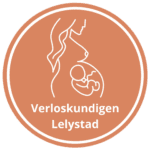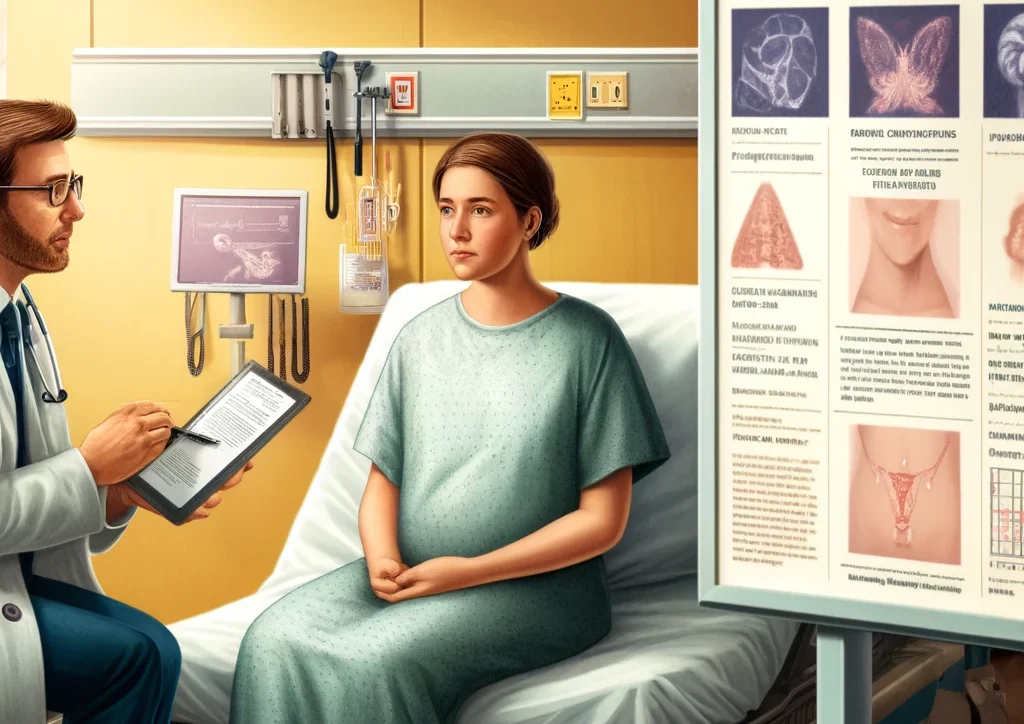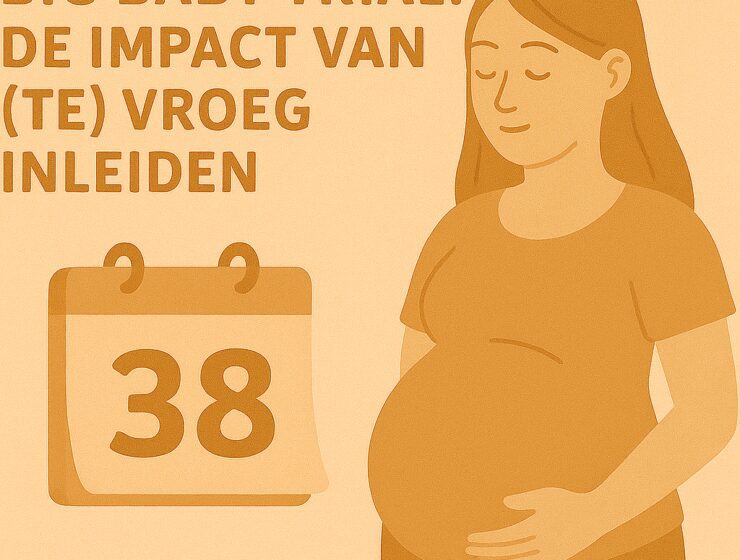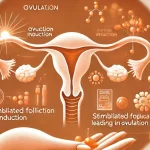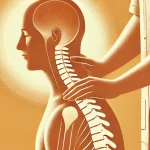Today we want to talk about a topic that does not always receive the same attention, but is oh so important: Rare ailments after childbirth.
After the birth of your little one, your world will probably be turned upside down. There is so much new and so much to learn. The focus is often on the baby and that is of course rightly so. But what sometimes fades into the background is the health and well-being of the mother after childbirth. In addition to the 'normal' recovery period, some mothers may experience less common, rare complications.
By being well informed, you can recognize any problems more quickly and take action. That is why in this article we will take a closer look at some of these rare postpartum ailments. We will discuss what they mean, how you can recognize them and of course, what you can do if you suffer from them.
What are those rare ailments after childbirth?
As a midwifery practice, we regularly see new mothers with all kinds of questions about their recovery after childbirth. In addition to general fatigue and muscle pain, there are a number of lesser-known, rarer ailments that can occur. These deserve extra attention, because they are sometimes overlooked. Postpartum thyroid disorders are a good example of this; These can range from mild, unnoticed hypothyroidism to the more serious postpartum thyroiditis. Another example is pelvic floor dysfunction, where pain, discomfort or even incontinence can come to the fore, long after the birth of your child.
Another rarity is postpartum cardiomyopathy (pregnancy-related heart failure), an extremely serious condition that, although rare, can be life-threatening and requires intensive medical care. Emotional and psychological problems can also occur, such as postpartum depression or PTSD after a particularly difficult birth. But let's not forget the osteoporosis of the postpartum period, a temporary but significant decrease in bone density that can lead to pain and even fractures. Below is a brief list of some of these ailments for quick reference:
-
- Postpartum thyroid disorders: Ranging from mild hypothyroidism to postpartum thyroiditis.
-
- Pelvic floor dysfunction: Pain, discomfort, or incontinence related to the pelvic floor.
-
- Postpartum cardiomyopathy: A rare but serious heart condition that occurs after childbirth.
-
- Postpartum osteoporosis: A temporary decreasein bone density, which can lead to pain and fractures.
-
- Psychological complications: Including postpartum depression and PTSD after a traumatic birth.
It is important that new mothers are aware of these possible ailments and maintain close contact with their midwife or doctor if they have any questions or concerns. At Midwives Lelystad we are committed to supporting your recovery process, with a listening ear and personalized care. Never be afraid to speak out; your health is our priority.
How do you recognize the signals?
There are several signs that can indicate postpartum complications, some of which are easy to miss. First of all, it is important to pay attention to severe or persistent pain. This is different from normal postpartum pain and can be an indication of internal complications. Also fever or chills can be a sign of infections that require immediate medical attention. It is essential to observe your body carefully and, if in doubt, always seek professional advice.
In addition, play changes in lochia (after-pains) an important role. If the lochia stops suddenly, this may indicate a blockage, and if it is very severe or has an unusual odor, it may signal an infection. Also pay attention complaints such as headache, vision problems or swelling, especially if these symptoms are new or worsening. Recognizing these signs and acting quickly can make a big difference in the recovery process. The table below provides an overview of the core signals and their possible meanings.
| Signal | Possible Meaning |
|---|---|
| Severe or persistent pain | Internal complications |
| Fever or chills | Infection |
| Changes in lochia | Blockage or infection |
| Complaints such as headache, vision problems, swelling | Preeclampsia or other serious conditions |
Recognizing these signals enables you to seek help in a timely manner and tackle complications efficiently. Midwives Lelystad we always emphasize the importance of listening to your body and not ignoring signals that indicate that something is not quite right. Our team is ready to support and guide you through every step of your postpartum recovery process.
Advice to get better
In the journey to postpartum recovery, where you may be dealing with rare ailments, it is essential to pay attention not only to physical health, but also to mental health. Here are some tips that can help you recover faster and better:
-
- Exercise regularly: Even though you may not immediately feel able to do intensive exercises, try gentle forms of exercise such as walking or postnatal yoga. This can improve blood circulation and contribute to faster recovery.
-
- Eat nutritious meals: Nutrition plays a crucial role in your recovery process. Focus on a balanced diet with enough vegetables, fruits, proteins, and whole grains to give you energy and provide your body with essential nutrients.
-
- Make sure you get enough rest: Sleep when your baby sleeps. It's easier said than done, but rest is crucial for your physical recovery and mental well-being.
Realize that every mother and every birth is unique – what works for one person may not work for another. Always listen carefully to your body and don't exceed your limits. Below is a simple overview of some basic guidelines that can help you navigate the postpartum complications:
| Aspect | Recommendations |
|---|---|
| Physical health | Start with light exercise and nutritious meals |
| Mental health | Take time for yourself, consider support from a professional |
| Rest and recovery | Make sure you get enough sleep and rest |
Remember, postpartum recovery is a marathon, not a sprint. Give yourself the time and compassion you deserve. If you have any questions or concerns, do not hesitate to contact your midwife or GP. We at Midwives Lelystad are here to support you at every step of this special journey.
When is it time to sound the alarm?
After giving birth, your body is recovering from one of the most significant physical events it will ever experience. It is completely normal to suffer from various discomforts, but there are certain symptoms that can be a red flag and for which it is essential to seek help as soon as possible. These include, but are not limited to, heavy bleeding that does not subside, severe headaches, fever, or vision problems. It's crucial to listen to your body and take action if something feels like it's not right.
It can sometimes be difficult to tell when something is serious enough to call for medical attention. That's why we've put together a simple list of symptoms that serve as warning signs:
-
- Inexplicable pain: Sharp pain in your stomach, head or chest.
-
- Excessive blood loss: Soaking more than one sanitary towel per hour is a sign that something is wrong.
-
- Strange discharge: A bad-smelling or unusually colored discharge may indicate an infection.
-
- Fever higher than 38°C: This may indicate an infection and should not be ignored.
-
- Breathing problems: Difficulty breathing or rapid breathing may indicate serious complications such as a pulmonary embolism.
It is important that you contact your doctor or midwife immediately if you experience these or other alarming symptoms. When in doubt, it is always better to call. Our team at Midwives Lelystad is always ready to support and guide you at every stage of motherhood, from pregnancy to after delivery.
The road to recovery: what you can do yourself
After the exciting period of childbirth, as a new mother you may be confronted with some unexpected ailments. Fortunately, there are ways in which you can positively influence the recovery process. First, it is crucial to get enough rest. We know, this sounds easier said than done especially with a newborn at home. But try to get some rest when your child is sleeping. Even a short nap can do wonders for your body and mind.
You can also actively contribute to your recovery through nutrition. A healthy and varied diet supports your body in its return to a pre-pregnancy state. Consider a diet rich in vitamins, minerals, proteins and good fats. Here's a simple guide to foods that are particularly helpful during the recovery process:
| Vitamins/Minerals | Foods | Advantages |
|---|---|---|
| Protein | Chicken, fish, eggs, beans | Promotes tissue repair |
| Iron | Spinach, red meat, lentils | Combats fatigue |
| Vitamin C | Oranges, kiwis, broccoli | Supports the immune system |
| Calcium | Yogurt, cheese, almonds | Strengthens the bones |
Remember, every body is unique and recovers at its own pace. So give yourself time and be patient with your body. If you notice that you are not improving or if you are concerned about your recovery, do not hesitate to contact us at Midwives Lelystad. We are ready to support you on the road to full recovery. Your health and well-being is our priority.
Resume
We hope that this article has given you more insight into the rare ailments and complications that can occur after childbirth. We understand it can be a bit overwhelming, but remember that “most women experience a normal postpartum recovery.”
If you have any concerns or questions about your own postpartum recovery, please know that our team at Midwives Lelystad is here to support you. We are ready to answer all your questions and provide the care and support you need in this new phase of your life.
It's important to listen to your body and not hesitate to seek professional help if you experience anything unusual. Your health and well-being are our priority and we are committed to providing the best possible care for both mother and child.
